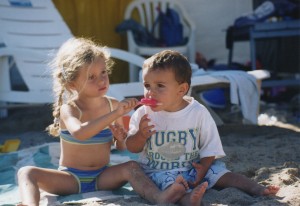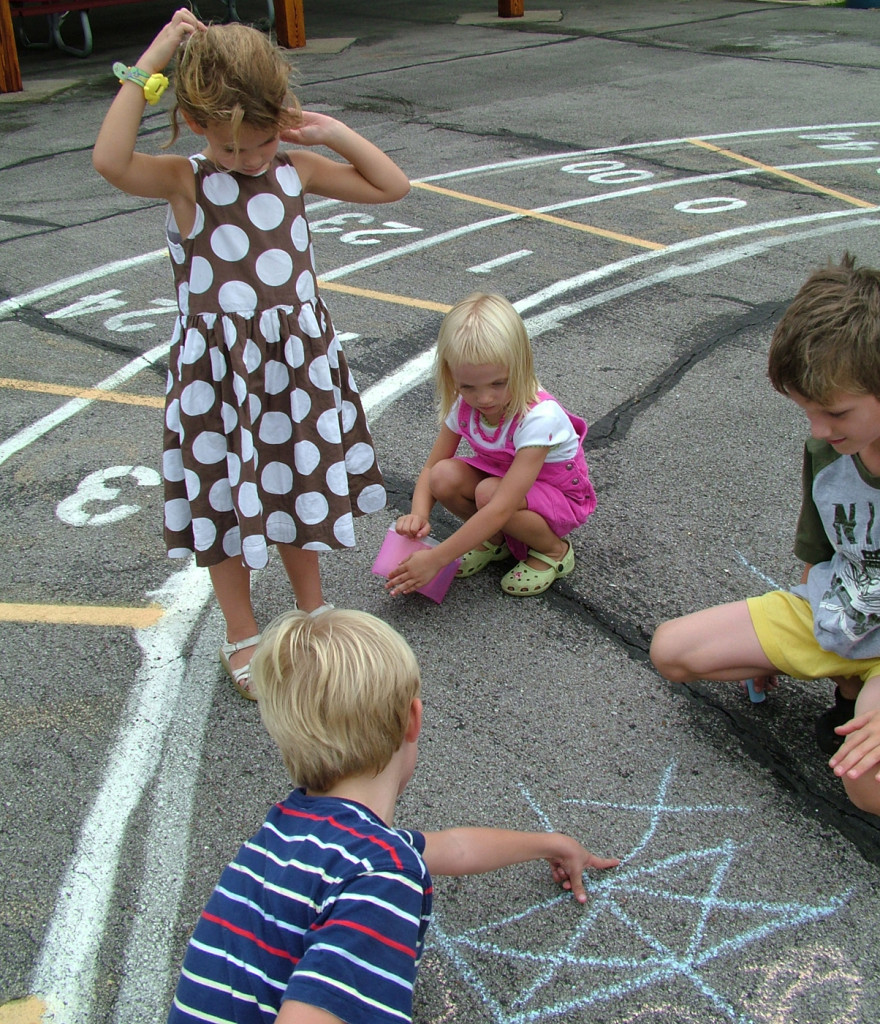The tug of war began; “Noooo! It’s MINE”…! I watched somewhat embarrassingly as my two-year old child proceeded to collect every toy that he could possibly clasp in his two hands, just so it was out of range for the other children.
So why is the concept of sharing so difficult for young children to grasp?
How do you encourage SHARING?
Make sharing fun
Teach your child cooperative games in which you work together. From a young age I have made my kids share in simple household activities such as sweeping the floor, watering the plants or making their beds. With my eldest son, I have found that sharing became second nature to him very quickly. He now knows that as soon as a chocolate or lolly packet is opened he has to choose something to share (I leave it up to him, giving him some control over the matter yet still allowing him to practice the concept of sharing ).
Having said this, it is important to leave room for mistakes and not to overreact if they do gobble down the whole chocolate in record time just so they don’t have to share! Even so, I usually try to respond positively such as “It’s would be nice to share your chocolate next time because it makes Mummy happy”.
Explain what is happening in a situation
Children are at times unaware of what is happening in a situation. They may be confised as to why another child is touching or pulling their favourite toy away. Try to access each situation to see what best to do to help your child. Also depending on your childs temperament, sharing may be a fairly easy or a very difficult concept. Your child can also be taught to understand some basic rules. I usually tell my kids that they need to wait their turn for a toy – ‘he goes, then you go’, or ‘if you walk away from a toy, then anyone there gets to play with it.’
Realise that children are still learning
Try not to tell your child that he’s selfish or discipline him when he doesn’t share. Don’t force him to hand over a prized possession as this is more likely to foster resentment opposed to encouraging generosity. Although at times I have been tempted to pull a toy away from my son and give it back to the other child, this is not really helping him to understand.
Offer lots of positive reinforcement
We spend so much time reminding our children to behave and to share that it can be easy to forget to offer applause when your child does exactly what you want him to do. For example, if he does share without a reminder to do so, let him know how happy you are to see him being so nice to his friend or sibling. You could also point out that he has made that other child very happy too!
Teach your little one ‘tricks’
When my youngest child began pulling toys away from her toddler brother, this caused a lot of irritation and disturbance. I would encourage him to find another toy for her quickly as a distraction and diversion away from his toy. This soon became a habit for him and he was pleased that his toys or activity he was engaged in was no longer disrupted. I would respond with praise such as “well done for giving her a different toy so she doesn’t pull at your blocks”.
Respect your child’s things
I do respect that my children have toys that are precious or special to them. It is a nice habit to ask our children if we can borrow their things too. ‘Can you share you coloured pencils with Mum?’ When they respond positivity offer praise for good sharing!
Be generous ourselves
The best way for your child to learn generosity is to see it modelled from other members in the family. Even though we may already be sharing a lot of our things with our children, it does help to use the word ‘share’ so they become familiar with the concept – “Mummy is ‘sharing’ her biscuits with you, aren’t they yummy!”
When to expect your child to share?
As your child grows older, they may begin to realise that it feels good to share with others. Constantly praise your child when he does share with others. Expecting your two-year old to share may be a challenge as children at this stage are not very likely to be highly sociable just yet. Even though it may seem that your kids tend to care about themselves and their possessions, our constant guidance can help nurture them to grow into generous children.
Do you have any tips or strategies on how you get your children to share with their siblings or friends? If so, please feel free to leave a comment below!
Originally posted 2013-12-18 10:46:07.

